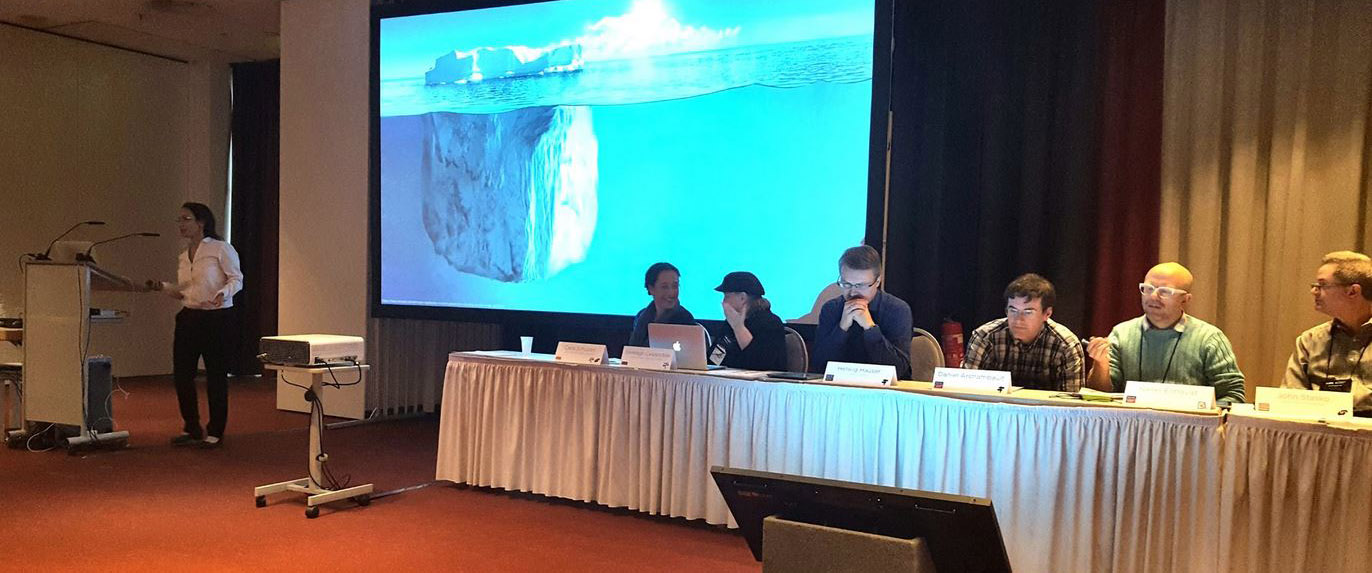Remembering Luana Micallef
With great sadness, Aviz members and alumni learned of the passing of Luana Micallef in February 2019.
Luana was a visiting PhD student at Aviz in 2011, where she studied how visualizations can help laypersons reason about probabilities and overcome cognitive biases such as the base rate fallacy. During her stay, she conducted experiments and wrote an original and impactful article that was very well-received at the IEEE VIS 2012 conference, the leading conference in visualization. Her article received a Best Paper Honorable Mention award and has been very well-cited. As part of this work, Luana created a wonderful, elegant video that explains Bayesian reasoning and the base rate fallacy to non-technical audiences in only two minutes.
Luana combined a unique set of skills and domains of knowledge: she had excellent technical skills in algorithms, programming, and optimization, while also being knowledgeable in experimental psychology, information visualization, and human factors. Possessing these different abilities and understanding the different research cultures made her a very unique researcher. She was seen by her colleagues as a reliable, competent, and positive expert on anything related to human reasoning and visualization.
During her postdoctoral stay at the Helsinki Institute for Information Technology, Luana continued to carry out remarkable work. For example, her eulerAPE tool published in 2014 is highly influential and used by researchers in a range of disciplines. Her 2016 survey of methods for visualizing sets is now the standard reference for this challenging research problem. Luana's work was always thorough, deep, honest, and important.
In late 2018, Luana was appointed as a Tenure-Track Assistant Professor at the University of Copenhagen. Her research program was original, important, and involved a unique team of world-renowned collaborators, as well as some Aviz members and alumni. Her vision was to establish a framework of, as she named it, "the Human Visual Bayesian Brain". She wanted to contribute to a balanced human-computer symbiosis in visual analytics systems, in which even non-experts would be empowered to make better-informed decisions. Her proposed research was not only rigorous but most importantly, it revealed her deep care about making research that matters. She engaged in multiple collaborations with researchers around the world, submitted several articles, and had started to work on book chapters. There is little doubt that she would have continued to carry out high-quality, influential research.
Soon after her appointment at the University of Copenhagen, Luana organized a workshop at the IEEE VIS conference entitled Succeeding by Failing: The Iceberg in VIS Careers (see full video recording here). The participants, some of which were Aviz members and alumni, were very impressed and thankful that she took on such an important, yet oft-overlooked topic within the visualization community. One of our own young Master’s students rated the panel as the best event she attended at IEEE VIS that year. Without a doubt, this panel similarly helped a lot of beginners and experienced researchers have a positive attitude and bounce back from setbacks.
Luana is remembered fondly, not only by Aviz but also by her collaborators and many throughout the visualization research community. Everyone who met Luana was struck by her clear-mindedness, enthusiasm, and positivity. She was an outstanding researcher with an inexhaustible amount of energy and a genuine passion for research. She was honest, curious, and always eager to learn. Everyone enjoyed working with her and hearing about her work. The flask from Malta she offered us long ago remains at Aviz as a happy souvenir of her.
Our thoughts are with Luana's family, friends, and the many people in the visualization community who highly valued her expertise, spirit, and dedication to research. Everyone who knew Luana enjoyed her humor, energy, and enthusiasm. She will be greatly missed.






